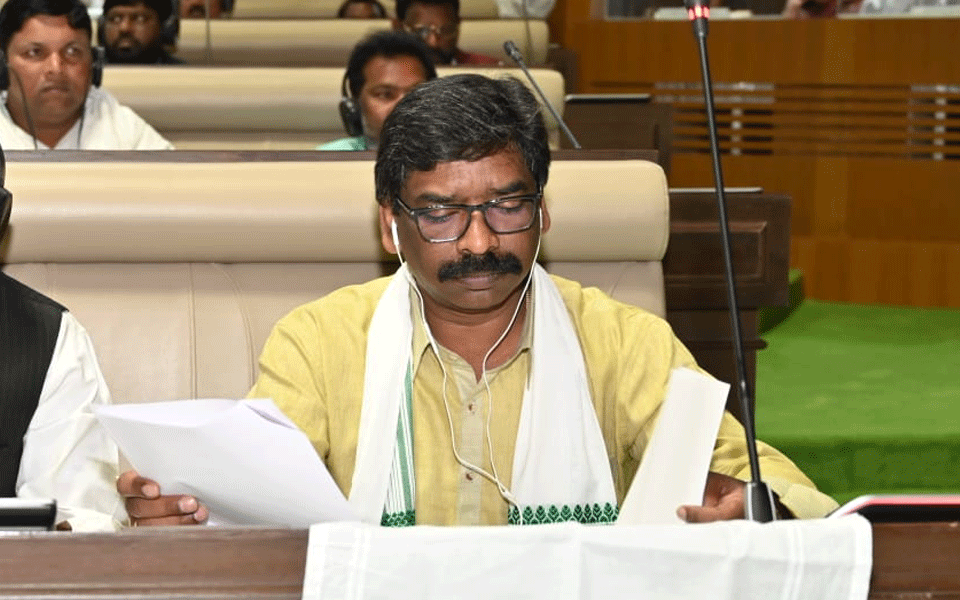Ranchi (PTI): A bill was passed in the Jharkhand assembly on Friday to raise the total reservation offered to different categories to 77 per cent.
In a special session, the assembly passed an amendment to the Jharkhand Reservation of Vacancies in Posts and Services Act, 2001, raising the reservations for STs, SCs, EBCs, OBCs and Economically Weaker Sections (EWS) in government jobs from the present 60 per cent.
The bill proposes that the state will urge the Centre for changes in the Ninth Schedule of Constitution.
In the proposed reservation, local people of the SC community will get a quota of 12 per cent, STs will get 28 per cent, Extremely Backward Classes (EBCs) 15 per cent, OBCs 12 per cent, and EWS barring those from the other reserved categories 10 per cent.
At present, the STs get a 26 per cent reservation in Jharkhand, while SCs get 10 per cent quota.
The OBCs currently get a 14 per cent quota in the state, and increasing it was an electoral promise of all mainstream parties in 2019, including the ruling alliance of JMM, Congress and RJD.
The bill was passed amid protests by MLAs of the ruling BJP.
Chief Minister Hemant Soren termed the legislation a "suraksha kavach" (safety shield) for the state's people who foiled conspiracies by the opposition.
Proposals for some amendments, and a proposal to send the bill for vetting by an assembly committee were rejected.
Let the Truth be known. If you read VB and like VB, please be a VB Supporter and Help us deliver the Truth to one and all.
Kalaburagi: Four men have been arrested in Kalaburagi on charge of hacking a man with lethal weapons and pelting stones at him under the limits of Station Bazaar Police Station recently.
According to police sources, Anand Jalak Shinde (34), Ashitosh Jalak Shinde (30), Imran Mehboob Sheikh (28) and Sohaib Anwar Qureshi have been arrested. The men are accused of the brutal murder of Syed Mehboob, a resident of Station Bazaar Upper Line Hamalawadi in the city.
An FIR was filed by the Station Bazaar Police Station based on a complaint given by Syed Ismail, father of the deceased Syed Mehboob.
Following quick probe, the police team successfully arrested the suspects within 24 hours. The arrested men were produced in court and have been sent to judicial custody.
The City Police Commissionerate has appreciated in an official release the police team’s quick solving of the murder case and arrest of the four men accused of murdering Syed Mehboob.





